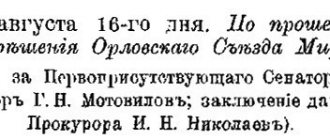Crimes are committed every day in the country.
It is up to the investigator to find the culprit and restore justice. A representative of the law must have a set of qualities and skills that allow him to find the culprit of the incident and find out the motive for the crime. All of them are regulated by law (Article 38 of the Code of Criminal Procedure). Multi-channel free hotline Legal advice on criminal law. Every day from 9.00 to 21.00
Moscow and region: +7 (495) 662-44-36
St. Petersburg: +7 (812) 449-43-40
What is Article 38 of the Code of Criminal Procedure about?
The concept of the position of “investigator” is disclosed in Art. 38 Code of Criminal Procedure of the Russian Federation. According to the Code of Criminal Procedure in the latest edition, an investigator is an official empowered to conduct investigative actions within the framework of his competence provided for by the Code of Criminal Procedure.
The main powers of the investigator in criminal proceedings are described in Art. 38 code.
The investigator has the right:
- Initiate a criminal case.
- Conduct a criminal case and resolve all issues related to the case, take appropriate measures.
- Determine the course of the investigation individually and decide on investigative actions. The exception is cases when it is necessary to obtain the consent of the court or higher management.
- Issue a written instruction to the inquiry authorities to carry out a set of investigative measures.
- Take part in court hearings.
- Issue a decision to detain, prosecute, arrest, or conduct procedural actions.
- Appeal the prosecutor's decision, cancel the decision to initiate a criminal case, return the criminal case for further investigation, change the charged article or reclassify the defendant's actions, eliminate shortcomings identified during the investigation.
- Send your objections in writing to the head of the investigative department regarding any disagreements with the actions of the prosecutor that are contrary to current legislation.
The investigator’s actions are aimed at ensuring law and order in society and eliminating the threat to the country’s population.
Personal qualities of an investigator include:
- Analytical mind;
- logical thinking;
- the ability to correctly and accurately present facts;
- ability to think quickly in stressful situations;
- the ability to defend one’s point of view and present arguments.
Knowledge of the law and the ability to build a logical chain of events is a distinctive feature of a qualified law enforcement officer.
Comment on the article
Let's briefly look at the main points:
- All requests, orders and resolutions issued by the investigator within the framework of the current legislation must be unquestioningly carried out by enterprises, companies, budgetary institutions, and officials to whom they are addressed (Article 21 part 4 of the Code of Criminal Procedure).
- The commented article describes the responsibilities assigned to the investigator when identifying actions that violate the law. In the event of an offense, the investigator must take measures to eliminate the fact of the crime, identify those responsible for the crime, receive and verify information about the impending offense (terrorist attack, conspiracy) within his competence, make a decision regarding its prevention, make a decision regarding the termination of criminal prosecution, or otherwise decision regarding the action that took place.
- Unlike the bodies of inquiry, the investigator does not have the right to take operational investigative measures (Article 40 of the Code), but he has powers that are not within the competence of the investigator.
- The investigator has the right to express his disagreement with the prosecutor regarding his comments regarding errors identified during the preliminary investigation or his removal from the case. He may submit his objections in writing to the head of the investigative department, who will inform the prosecutor about the objections raised by the investigator. The head of the investigative department studies all the demands and objections put forward, and makes a decision on the implementation (non-execution) of them. At the same time, informing the investigator and the prosecutor about his decision.
- The sledak (colloquial version of the job title) must unquestioningly follow all orders and instructions from senior management. But if the investigator has a different opinion regarding the conduct of the investigation, he has the right to defend it.
- The investigator may, without waiting for the necessary actions to be carried out by the investigative bodies (Article 157 of the Code of Criminal Procedure), begin a preliminary investigation into an offense (in cases where a preliminary investigation is a prerequisite);
- Has the right to give instructions to the investigator regarding the conduct of the investigation or operational-search activities.
- An order is a written request to carry out certain actions (operational or investigative). The instruction acts as an addition to the order and provides an explanation of what needs to be done to fulfill the order.
- The order indicates the deadline for its execution, and it cannot be violated, since there are situations when it is necessary to simultaneously carry out investigative actions (searches). Delay in execution of an order may disrupt the entire course of the investigation.
- If the order does not indicate the period for carrying out investigative measures, in accordance with paragraph 1 of Art. 152 of the Code of Criminal Procedure, all necessary measures must be carried out within 10 days.
- For each order of the investigator, he must be sent a written response from the responsible person.
All orders and instructions are given by the investigator in writing and must have a response from an authorized person about the measures taken to implement them.
The investigator's orders can be of several types:
- Conducting operational search activities by the investigator.
- Involvement of the inquiry authorities in carrying out certain investigative actions.
- Taking additional measures to conduct the investigation (environment and its security).
- Detention of the defendant if such a decision is made by the court.
- Resolution on arrest, detention or other procedural actions.
The investigator's instructions may be of a different nature, but must be followed strictly as prescribed.
The order (instruction) must contain the following information:
- the name of the inquiry body to which the order was sent;
- details of the person (name, surname, position) who gave the order;
- grounds for issuing an order (link to an article of the procedural code);
- the essence of the order (issues that require detail);
- sequence of execution of instructions;
- advice on how to behave in order to obtain certain information;
- deadline for execution of the instruction;
- information about where to obtain supporting clarification regarding the assigned tasks.
If the order does not indicate the time for its execution, then it must be executed within ten days.
The investigator in criminal proceedings is guided by the Code of Action and other legal acts.
He must solve crimes in the ways and means described by the Code of Criminal Procedure. The law states that the investigator must find out all actions and facts that require proof, ensure a comprehensive and objective investigation and get to the truth. According to the changes of 2007, the possibility of influence of the prosecutor on the investigator is significantly limited. In turn, the capabilities of the investigative department have been expanded. During the investigation, the investigator can serve as the head of the investigation team and give instructions to the investigative bodies.
Another task of the investigator is to warn against committing a crime. This means explaining all negative consequences to all citizens involved in the investigation. It also restores the rights of persons undeservedly brought to justice.
Chapter 2. Rights and freedoms of man and citizenArticle 17
1. In the Russian Federation, the rights and freedoms of man and citizen are recognized and guaranteed in accordance with the generally recognized principles and norms of international law and in accordance with this Constitution.
2. Fundamental human rights and freedoms are inalienable and belong to everyone from birth.
3. The exercise of human and civil rights and freedoms should not violate the rights and freedoms of other persons.
Article 18
The rights and freedoms of man and citizen are directly applicable. They determine the meaning, content and application of laws, the activities of the legislative and executive powers, local self-government and are ensured by justice.
Article 19
1. Everyone is equal before the law and the court.
2. The state guarantees equality of rights and freedoms of man and citizen, regardless of gender, race, nationality, language, origin, property and official status, place of residence, attitude to religion, beliefs, membership in public associations, as well as other circumstances. Any form of restriction of the rights of citizens on the basis of social, racial, national, linguistic or religious affiliation is prohibited.
3. Men and women have equal rights and freedoms and equal opportunities for their implementation.
Article 20
1. Everyone has the right to life.
2. Until its abolition, the death penalty may be established by federal law as an exceptional measure of punishment for especially serious crimes against life, providing the accused with the right to have his case heard by a court with the participation of a jury.
Article 21
1. Personal dignity is protected by the state. Nothing can be a reason to belittle him.
2. No one should be subjected to torture, violence, or other cruel or degrading treatment or punishment. No one can be subjected to medical, scientific or other experiments without voluntary consent.
Article 22
1. Everyone has the right to freedom and personal security.
2. Arrest, detention and detention are permitted only by court decision. Pending a court decision, a person cannot be detained for more than 48 hours.
Article 23
1. Everyone has the right to privacy, personal and family secrets, protection of their honor and good name.
2. Everyone has the right to privacy of correspondence, telephone conversations, postal, telegraph and other messages. Restriction of this right is permitted only on the basis of a court decision.
Article 24
1. Collection, storage, use and dissemination of information about the private life of a person without his consent is not permitted.
2. State authorities and local self-government bodies, their officials are obliged to provide everyone with the opportunity to familiarize themselves with documents and materials that directly affect their rights and freedoms, unless otherwise provided by law.
Article 25
Home is inviolable. No one has the right to enter a home against the will of the persons living there, except in cases established by federal law, or on the basis of a court decision.
Article 26
1. Everyone has the right to determine and indicate their nationality. No one can be forced to determine and indicate their nationality.
2. Everyone has the right to use their native language, to freely choose the language of communication, education, training and creativity.
Article 27
1. Everyone who is legally present on the territory of the Russian Federation has the right to move freely, choose their place of stay and residence.
2. Everyone can freely travel outside the Russian Federation. A citizen of the Russian Federation has the right to freely return to the Russian Federation.
Article 28
Everyone is guaranteed freedom of conscience, freedom of religion, including the right to profess, individually or together with others, any religion or not to profess any, to freely choose, have and disseminate religious and other beliefs and to act in accordance with them.
Article 29
1. Everyone is guaranteed freedom of thought and speech.
2. Propaganda or agitation that incite social, racial, national or religious hatred and enmity are not permitted. Promotion of social, racial, national, religious or linguistic superiority is prohibited.
3. No one can be forced to express or renounce their opinions and beliefs.
4. Everyone has the right to freely seek, receive, transmit, produce and disseminate information by any legal means. The list of information constituting a state secret is determined by federal law.
5. Freedom of the media is guaranteed. Censorship is prohibited.
Article 30
1. Everyone has the right to association, including the right to create trade unions to protect their interests. Freedom of activity of public associations is guaranteed.
2. No one can be forced to join or remain in any association.
Article 31
Citizens of the Russian Federation have the right to assemble peacefully, without weapons, to hold meetings, rallies and demonstrations, processions and picketing.
Article 32
1. Citizens of the Russian Federation have the right to participate in the management of state affairs, both directly and through their representatives.
2. Citizens of the Russian Federation have the right to elect and be elected to government bodies and local self-government bodies, as well as to participate in a referendum.
3. Citizens declared incompetent by a court, as well as those held in prison by a court sentence, do not have the right to elect or be elected.
4. Citizens of the Russian Federation have equal access to public service.
5. Citizens of the Russian Federation have the right to participate in the administration of justice.
Article 33
Citizens of the Russian Federation have the right to apply personally, as well as send individual and collective appeals to state bodies and local governments.
Article 34
1. Everyone has the right to freely use their abilities and property for entrepreneurial and other economic activities not prohibited by law.
2. Economic activities aimed at monopolization and unfair competition are not allowed.
Article 35
1. The right of private property is protected by law.
2. Everyone has the right to own property, own, use and dispose of it, both individually and jointly with other persons.
3. No one can be deprived of his property except by a court decision. Forced alienation of property for state needs can only be carried out subject to prior and equivalent compensation.
4. The right of inheritance is guaranteed.
Article 36
1. Citizens and their associations have the right to own land in private ownership.
2. Possession, use and disposal of land and other natural resources are carried out by their owners freely, if this does not cause damage to the environment and does not violate the rights and legitimate interests of other persons.
3. The conditions and procedure for using land are determined on the basis of federal law.
Article 37
1. Labor is free. Everyone has the right to freely use their ability to work, choose their type of activity and profession.
2. Forced labor is prohibited.
3. Everyone has the right to work in conditions that meet safety and hygiene requirements, to remuneration for work without any discrimination and not lower than the minimum wage established by federal law, as well as the right to protection from unemployment.
4. The right to individual and collective labor disputes is recognized using the methods for resolving them established by federal law, including the right to strike.
5. Everyone has the right to rest. A person working under an employment contract is guaranteed the length of working hours established by federal law, weekends and holidays, and paid annual leave.
Article 38
1. Motherhood and childhood, the family are under the protection of the state.
2. Caring for children and raising them is an equal right and responsibility of parents.
3. Able-bodied children who have reached the age of 18 must take care of disabled parents.
Article 39
1. Everyone is guaranteed social security by age, in case of illness, disability, loss of a breadwinner, for raising children and in other cases established by law.
2. State pensions and social benefits are established by law.
3. Voluntary social insurance, the creation of additional forms of social security and charity are encouraged.
Article 40
1. Everyone has the right to housing. No one can be arbitrarily deprived of their home.
2. State authorities and local self-government bodies encourage housing construction and create conditions for the exercise of the right to housing.
3. Low-income people and other citizens specified in the law who need housing are provided with it free of charge or for an affordable fee from state, municipal and other housing funds in accordance with the norms established by law.
Article 41
1. Everyone has the right to health care and medical care. Medical care in state and municipal health care institutions is provided to citizens free of charge at the expense of the corresponding budget, insurance premiums, and other revenues.
2. In the Russian Federation, federal programs for the protection and promotion of public health are financed, measures are taken to develop state, municipal, and private health care systems, activities that promote human health, the development of physical culture and sports, environmental and sanitary-epidemiological well-being are encouraged.
3. Concealment by officials of facts and circumstances that pose a threat to the life and health of people entails liability in accordance with federal law.
Article 42
Everyone has the right to a favorable environment, reliable information about its condition and to compensation for damage caused to his health or property by environmental violations.
Article 43
1. Everyone has the right to education.
2. General accessibility and freeness of preschool, basic general and secondary vocational education in state or municipal educational institutions and enterprises are guaranteed.
3. Everyone has the right to receive higher education free of charge on a competitive basis at a state or municipal educational institution and enterprise.
4. Basic general education is mandatory. Parents or persons replacing them ensure that their children receive basic general education.
5. The Russian Federation sets federal state educational standards and supports various forms of education and self-education.
Article 44
1. Everyone is guaranteed freedom of literary, artistic, scientific, technical and other types of creativity and teaching. Intellectual property is protected by law.
2. Everyone has the right to participate in cultural life and use cultural institutions, to have access to cultural values.
3. Everyone is obliged to take care of the preservation of historical and cultural heritage, to protect historical and cultural monuments.
Article 45
1. State protection of human and civil rights and freedoms in the Russian Federation is guaranteed.
2. Everyone has the right to protect their rights and freedoms by all means not prohibited by law.
Article 46
1. Everyone is guaranteed judicial protection of his rights and freedoms.
2. Decisions and actions (or inaction) of state authorities, local governments, public associations and officials may be appealed to the court.
3. Everyone has the right, in accordance with international treaties of the Russian Federation, to apply to interstate bodies for the protection of human rights and freedoms if all available domestic remedies have been exhausted.
Article 47
1. No one can be deprived of the right to have his case considered in the court and by the judge to whose jurisdiction it is assigned by law.
2. A person accused of committing a crime has the right to have his case examined by a court with the participation of a jury in cases provided for by federal law.
Article 48
1. Everyone is guaranteed the right to receive qualified legal assistance. In cases provided for by law, legal assistance is provided free of charge.
2. Every person detained, taken into custody, or accused of committing a crime has the right to have the assistance of a lawyer (defender) from the moment of detention, detention, or presentation of charges, respectively.
Article 49
1. Everyone accused of committing a crime is considered innocent until his guilt is proven in the manner prescribed by federal law and established by a court verdict that has entered into legal force.
2. The accused is not required to prove his innocence.
3. Irremovable doubts about a person’s guilt are interpreted in favor of the accused.
Article 50
1. No one can be convicted twice for the same crime.
2. In the administration of justice, the use of evidence obtained in violation of federal law is not permitted.
3. Everyone convicted of a crime has the right to have the sentence reviewed by a higher court in the manner prescribed by federal law, as well as the right to ask for pardon or commutation of punishment.
Cases from judicial practice
Let us consider cases of judicial practice under this article.
Lawyer B. filed a complaint with the court against the investigator’s decision to put citizen K. on the wanted list. The applicant claims that the decision made is unfounded, since the investigator has no evidence that citizen K. is hiding from the investigation. The suspect and her lawyer were not properly notified of the investigative measures. There are no documents confirming the summons to the investigative committee. There is also no confirmation that the investigator tried to establish the whereabouts of citizen K. In this totality, the investigator had no reason to put citizen K on the wanted list. The suspect did not hide from the investigation, but was treated in a hospital, which is supported by certificates. After studying all the documents, the judge dismissed the complaint. The court found that all the necessary measures to establish the whereabouts of citizen K. were taken, but the arrest order was not executed, since the latter was absent from her place of registration, which was qualified as evasion of the investigation. The decision made was recognized as legal, since, according to Art. 38 of the Code of Criminal Procedure, it was issued by an authorized person in compliance with all legislative norms, falls within his competence and has all the grounds.
Citizen Ivanov was sentenced by court decision No.* to 2 years under Part 1 of Art. 109 of the Criminal Code with the following restrictions: undertaking not to leave the republic, impossibility of changing place of work or residence without the consent of regulatory authorities, he cannot attend cultural events, he must report to a specialized government agency once a month. The accused also paid victim B. a fine for moral damage in the amount of... rubles.
Victim B., with the support of her lawyer, filed a complaint with several additions against court decision No.*. The victim considers the court decision illegal and demands its cancellation. Since in the conclusion of the expert commission the question of the presence/absence of criminal intent in committing a crime was not raised, which, in turn, does not allow us to draw a conclusion about the negligence of citizen Ivanov’s actions. The investigator deliberately reclassified the defendant's case to Part 1 of Art. 109 of the Criminal Code of the Russian Federation. The case clearly states that Ivanov deliberately struck the son of citizen B. in the face, which resulted in death. During the preliminary investigation, the investigator did not conduct an investigative experiment with Ivanov to establish all the circumstances: the force of the blow, the distance between the conflicting parties, the location of witnesses. According to eyewitnesses, Ivanov was drunk, but there is not a single expert report confirming this fact.
When the identity of the guilty person was established, the police officers were negligent in their duties and did not go to arrest him. Before turning himself in to the police station, Ivanov had time to come up with a new version of everything that happened. The suspect claims that citizen M. attacked him, and witnesses claim the opposite.
After beating Gr.M., Ivanov did not call an ambulance and did not examine the victim, but left him to die, leaving the crime scene in his car. The defendant should have foreseen the consequences of his blow. These facts were not taken into account by either the investigator or the court of first instance. Ivanov’s actions provoked the death of victim B’s son. This fact was also not taken into account by the court. During the trial, from the words of witness P., it was established that all the witnesses were brought to the investigative committee by Ivanov’s relatives, this indicates that the necessary conversation was held with them. In turn, witness N. denies this fact. Citizen B. claims that the investigation itself was carried out with violations: the time of the blow, its strength, and the area of impact were not established.
The prosecutor was initially opposed to citizen B. and defended Ivanov. The questions asked of the witnesses at the first hearing were vague, imprecisely worded and contained an answer in their wording. The prosecutor supported all the defendant's motions, for which he received a reprimand from the judge leading the case. He did not support his clients’ requests to return the case for further investigation and reclassify the article. I did not agree with the judge’s verdict on compensation for material damage, although there were all the receipts indicating the date and cost of the services provided.
Having studied all the materials of the case, the court decided that all evidence of Ivanov’s guilt was collected in compliance with all requirements. All necessary circumstances of significance have been identified in the case. The conclusions of the examinations coincide in time and circumstances with the data indicated by the defendant and witnesses.
Regarding the arguments of the complaint that the investigator did not conduct an investigative experiment, it is indicated that in accordance with paragraph 3 of Part 2 of Art. 38, the investigator has the right to independently determine the course of the investigation and make a decision on whether or not to carry out investigative actions. The court denies the bias of the investigation, since, according to the Code of Criminal Procedure, the time and place of the incident, the method and other necessary information about the crime committed were established.
When determining the punishment, the nature and degree of threat to society and all aggravating and mitigating circumstances were taken into account. Violations of the Code of Criminal Procedure or the law that would contribute to the reversal of the sentence by a lower court are not allowed. The court decided to dismiss the complaint and leave the sentence unchanged.
Article 38 of the RF IC. Division of common property of spouses
The most conflicting situation seems to be the division of the common property of the spouses, which most often occurs as a result of divorce. It is also necessary in the event of the death of a spouse: after all, only the property that was the property of the testator is inherited. The division of joint property can also be made during the marriage, including by the court, at the request of the spouse or at the request of his creditors. The judge must take measures to secure the claim. Since the law does not connect the possibility of dividing the common property of spouses with the dissolution of a marriage, the court does not have the right to refuse to accept a statement of claim on the grounds that the marriage between the spouses was not dissolved.
The need for such a section may be due to various reasons. For example, a spouse wants to donate part of his property to his children or he needs a division to pay personal debts. The reasons for the division may also be the actual termination of family relations or the extravagance of one of the spouses. In these and other cases, it would be unreasonable to limit the rights of spouses and make the division of their common property conditional on the dissolution of the marriage, which could encourage divorce. Therefore, the legislator assumes that spouses will continue to live in marriage after the division of property. In this case, the legal regime of joint ownership will apply to the property that will be acquired by them after the division.
The subjects of common joint property in family relationships are only spouses. In other cases, when the subjects of common property are, in addition to spouses, other persons (in a peasant (farm) household, in a privatized residential premises), the participant in the common property will demand the allocation of his share.
The rules of the commented article relate to the division of joint property of spouses only, i.e. persons in a registered marriage, and to property that is available and located either by the spouses or by third parties. If, during the consideration of the dispute in court, it turns out that one of the spouses unlawfully disposed of the property or hid it, then the court takes into account this property or its value.
Spouses, as a rule, decide on the division of joint property themselves. In the event of a dispute, the issue is referred to the court. If spouses want to resolve a dispute about the division of common property simultaneously with the divorce, then the court finds out whether the dispute about the division of spouses’ property does not affect the rights of third parties (for example, other members of a peasant (farm) enterprise, cooperative, etc.). In this case, resolution of claims for divorce and division of property in one process is not allowed, and the dispute in this part of the claim must be separated into separate proceedings.
The court first determines the composition of the property to be divided. For this purpose, property objects belonging to each spouse, things and rights belonging to children, which are not subject to division between spouses, are established and allocated. The latter include things purchased solely to meet the needs of children, deposits made in the name of children.
Things and rights acquired by spouses during the period of their separation upon termination of family relations are not subject to division. These are cases of long-term separation of spouses, when in fact family relations between them are interrupted. These do not include cases of separation of spouses due to objective reasons: one of them is on a long business trip, studying, serving in the army, etc.
Having determined the composition of the common property to be divided, the court allocates the shares due to the spouses and specific items from the common property that are allocated to each spouse based on their interests and the interests of the children. If the division of specific things in accordance with shares is impossible, the court determines monetary or other compensation to the spouse.
When determining property to be divided between spouses, the court does not have the right to deprive property owners of their legal share, in particular, when dividing a dacha, garage, or other property in the relevant cooperative.
Currently, the object of joint property subject to division are deposits made by one of the spouses to a bank or other credit institution at the expense of the spouses’ common property. Other persons cannot claim a share of the contribution. If third parties provided their funds to the spouses, then these persons have the right to demand the return of their funds on the basis of the general provisions of the Civil Code of the Russian Federation.
When dividing the spouses' deposits, the court is obliged to take into account the increase in the amount of savings as a result of the compensation payments for the deposit provided for by legislative acts and the indexation of target deposits for the purchase of passenger cars.
The issues of division and allocation of living space are of great importance. The division of a residential building owned by spouses under the right of joint ownership is most often made in kind, and since the house remains indivisible, it becomes the subject of their shared ownership. The use of the premises is carried out by agreement of the spouses or by court decision. Since participants in common shared ownership have equal rights in relation to common property in proportion to their share, the court must, when allocating a share in kind, transfer to the owner a part of the residential building and non-residential buildings corresponding to his share, if this is possible without causing disproportionate damage to the economic purpose of the building.
The division of an unfinished house requires taking into account the ability of the spouses to complete the construction of their part, as well as the obligation for the loan received to build the house.
The division of a share in a housing cooperative is very complicated. Until the final repayment of the loan, it is possible only in connection with the dissolution of the marriage and is carried out in accordance with the funds that were contributed by the spouses from their common property or from personal funds. After the full payment of the share contribution, the apartment automatically becomes the subject of ownership, and its division is carried out according to general rules, taking into account the interests of all persons who are its owners and have the legal right to use this living space. The issue of dividing the common property of a privatized apartment is resolved in a similar way. Since the allocation in kind of an isolated living space in an apartment is usually difficult, it is permissible if it is technically possible to transfer to the plaintiff an isolated part of not only residential premises, but also utility rooms (kitchen, corridor, bathroom, etc.), and separate entrance equipment. In the absence of such a possibility, the court has the right, at the request of the plaintiff, to determine the procedure for using the apartment.
If spouses are part of a peasant (farm) holding, in which, in addition to them and their minor children, there are other persons, then the division of the common property of the spouses, which is not part of the property of the peasant holding, is carried out on a general basis.
A plot of land and means of production belonging to a peasant (farm) enterprise are not subject to division when one of its members leaves the enterprise. Those who leave the farm have the right to receive monetary compensation commensurate with their share in the common ownership of this property. Only upon the termination of a peasant (farm) enterprise in connection with the withdrawal of all its members or for other reasons, the common property is subject to division according to the general rules of civil and land legislation. The shares of the members of the farm in the right of joint ownership of the property of the farm are recognized as equal, unless otherwise established by agreement between them.
This principle also applies when inheriting the property of a peasant farm. If the heirs are not members of the household, they receive an inheritance in the form of monetary compensation. This provision does not apply to personal subsidiary plots, the property of which is inherited on a general basis.







